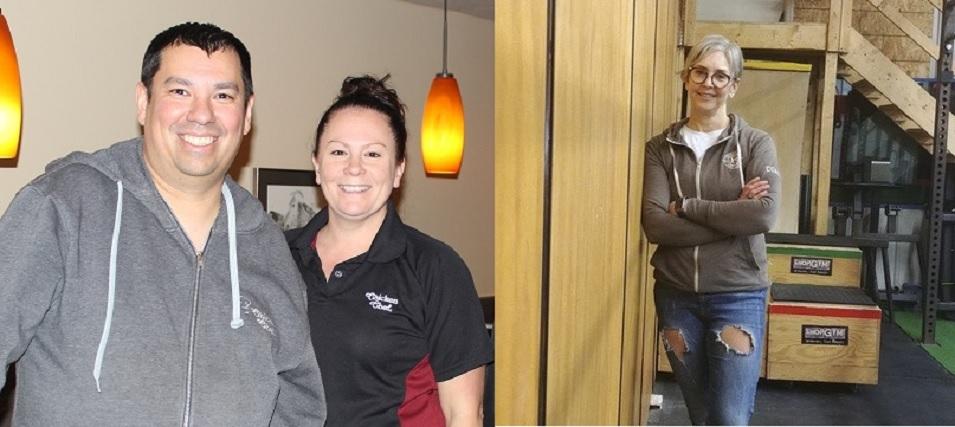Imagine, for a moment, driving along your community’s main street and seeing storefront after storefront dark and empty. Imagine no Chinese or pizza takeout. Imagine struggling to find a new hairdresser who’s still accepting clients or switching your gym membership to the big franchise in the city.
Imagine, too, getting a property tax bill that’s considerably higher than last year because there aren’t as many local businesses to carry the lion’s share of the taxbase.
It’s been over a month since the government issued full or partial closures, and many of our small-town entrepreneurs are worried. Everything they’ve ever worked for is on the line and so far there’s no clear end in sight.
Over the next few weeks, The Citizen will tell their stories.
Niverville Chicken Chef
Chicken Chef co-owner Laura Mulvena says the restaurant’s shift from dining room service to takeout-only has been challenging. The restaurant is now closed during what was once their busiest time of day: breakfast.
“We had to unfortunately lay off about 80 percent of staff initially, just because we had no idea what business would look like through this,” Mulvena says.
Pacing themselves for the new normal meant trying to determine which days and times of day would be busy with takeout, and then scheduling staff accordingly. They’ve since brought back four staff members to cook and fill orders.
Like most businesses, they’ve had to get creative to keep takeout interesting, including offering take-and-bake pizzas which can be baked at home as well as selling their cabbage borscht in one-litre containers for ready meals.
“Really, nothing is off the table,” Mulvena says. “We are in a marathon, not a sprint. They say this is our new norm and we need to convert sales to takeout and delivery.”
The new norm also includes drilling extra sanitizing protocols home to their staff to help keep everyone safe.
“We want Niverville and the surrounding area to know that we are open for you,” Mulvena says. “We want to be able to continue to serve our food during this time and for many years to come!”
In recent days, they’ve also begun to offer grocery bundles. For their first week, they tested out the concept with a bundle that provided customers with milk, eggs, ham, sausages, rye bread, chicken fingers, and a selection of pastries. They’ve said the first week was a big success.
Niverville Chicken Chef is open for orders everyday from 12:00 noon to 8:00 p.m.
ShopGym Inc.
If you’ve ever wondered how a gym can continue to operate in a virtual setting, ask ShopGym Inc. owner Crystal Stott.
“We are offering as close to an in-gym experience as possible in this challenging time,” Stott says. “We like to say that our service remains the same, but our delivery method has changed. We’ve been able to offer our programming online and create… virtual classes so that people can still workout with their gym buddies and be coached.”
While the gym is definitely operating below their typical capacity, Stott is hopeful about maintaining about 60 percent of her current membership until the restrictions are lifted. Almost all of the gym’s small equipment has been borrowed to members for use at home.
“We’re doing everything we can to help our membership through this stressful time,” she adds. “Obviously the longer this goes on, the less likely we are to retain members, but we’ve committed to giving all our members who were active as of the day of closure continued access to all of our online services until this is over, whether they have to pause their memberships or are able to continue to contribute financially.”
What the gym is really missing out on is the spike in revenue that is typical of April. This would be the time of year that ShopGym Kids classes pick up steam and weekends would be busy with Ninja parties for sports team windups.
“These extras typically result in an increase in our revenues of approximately 40 percent, so that’s revenue that won’t be realized this year,” adds Stott. “We’ve [also] lost 100 percent of our spin revenue for the month.”
Stott also recognizes that gym membership costs don’t take the priority that essentials do in a household budget, and with all of the layoffs it may be a long while before people are able to spend like they once did.
As for government benefit packages, so far Stott hasn’t found any that are viable options in her situation apart from small bank loans.
“Most small business owners are debt-phobic and taking on more debt is not a way of ensuring long-term viability,” says Stott. “Increasing debt without a corresponding jump in revenues makes servicing that debt very difficult, if not impossible.”
Rent subsidies for small business, she says, would be a much sounder solution.
In the meantime, she encourages everyone to continue working together to flatten the curve to help end the forced closures sooner.
“When businesses reopen, consider supporting [the ones] you haven’t in the past,” says Stott. “It’s going to take a long time to recover from this for most small businesses and every little bit helps.”


